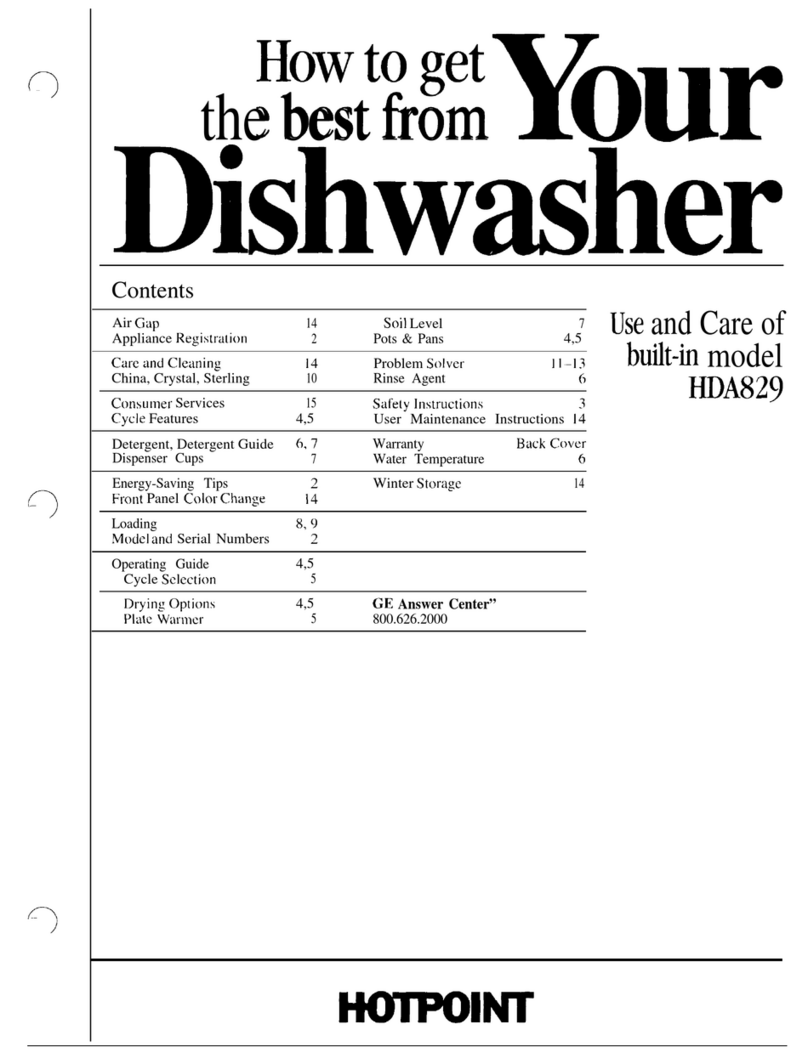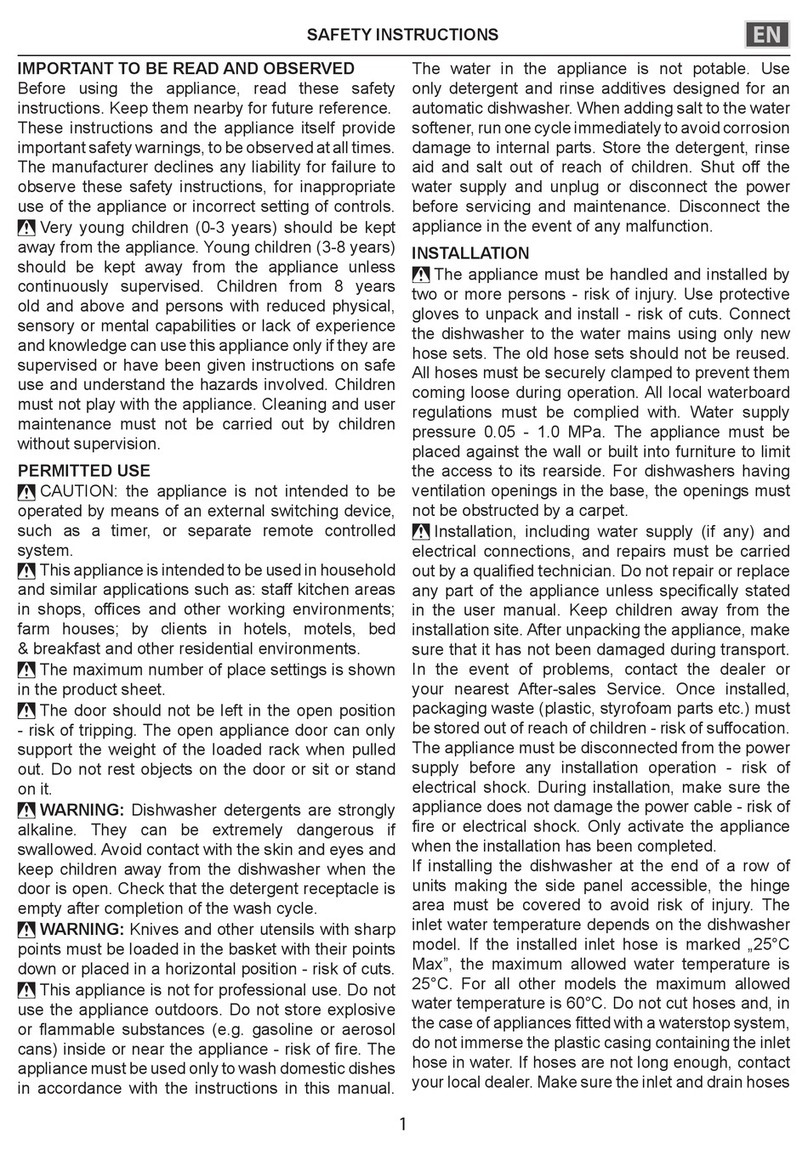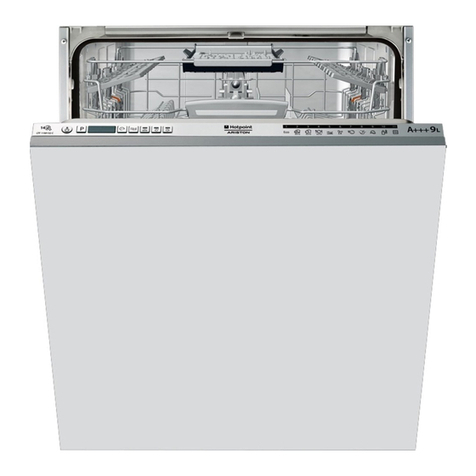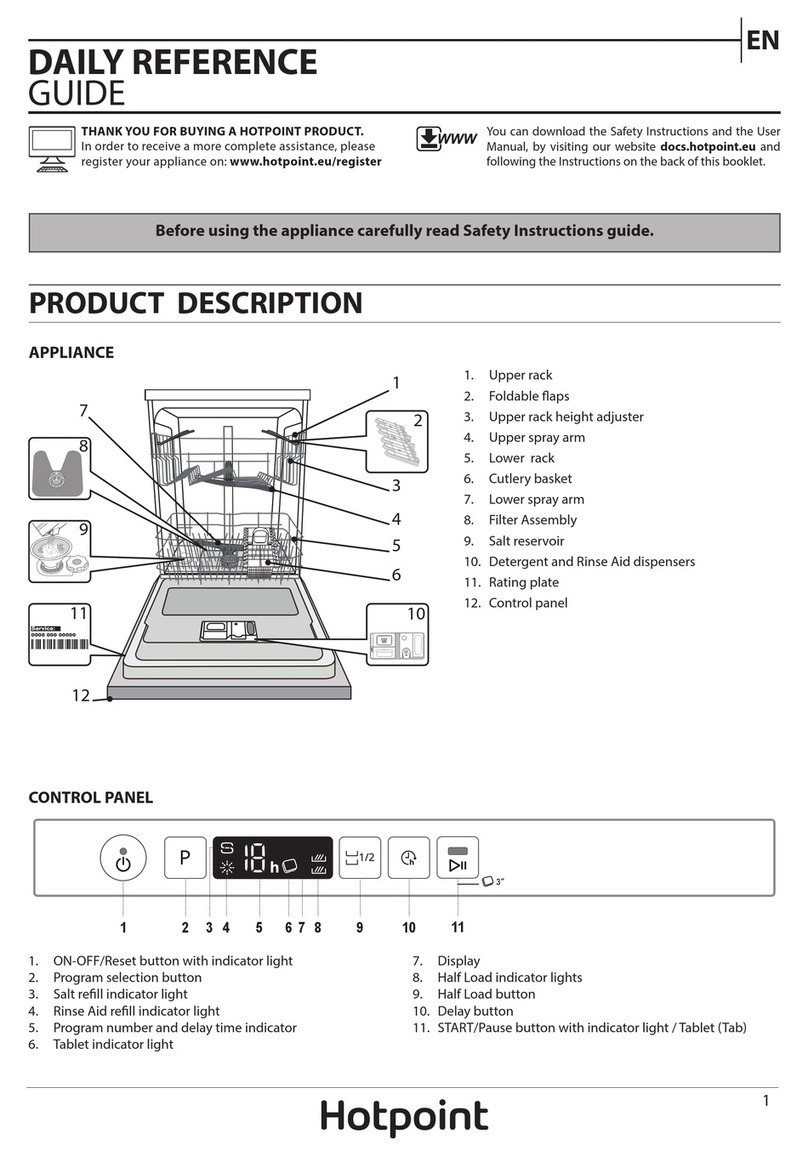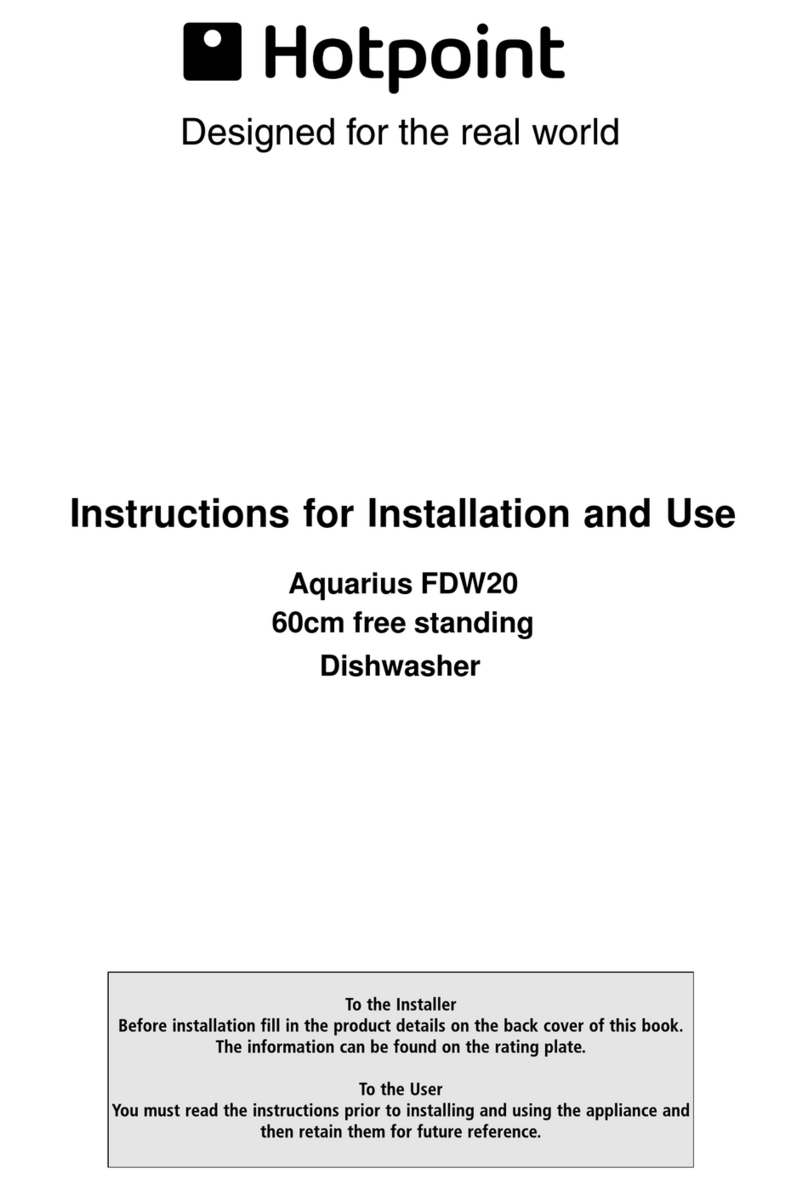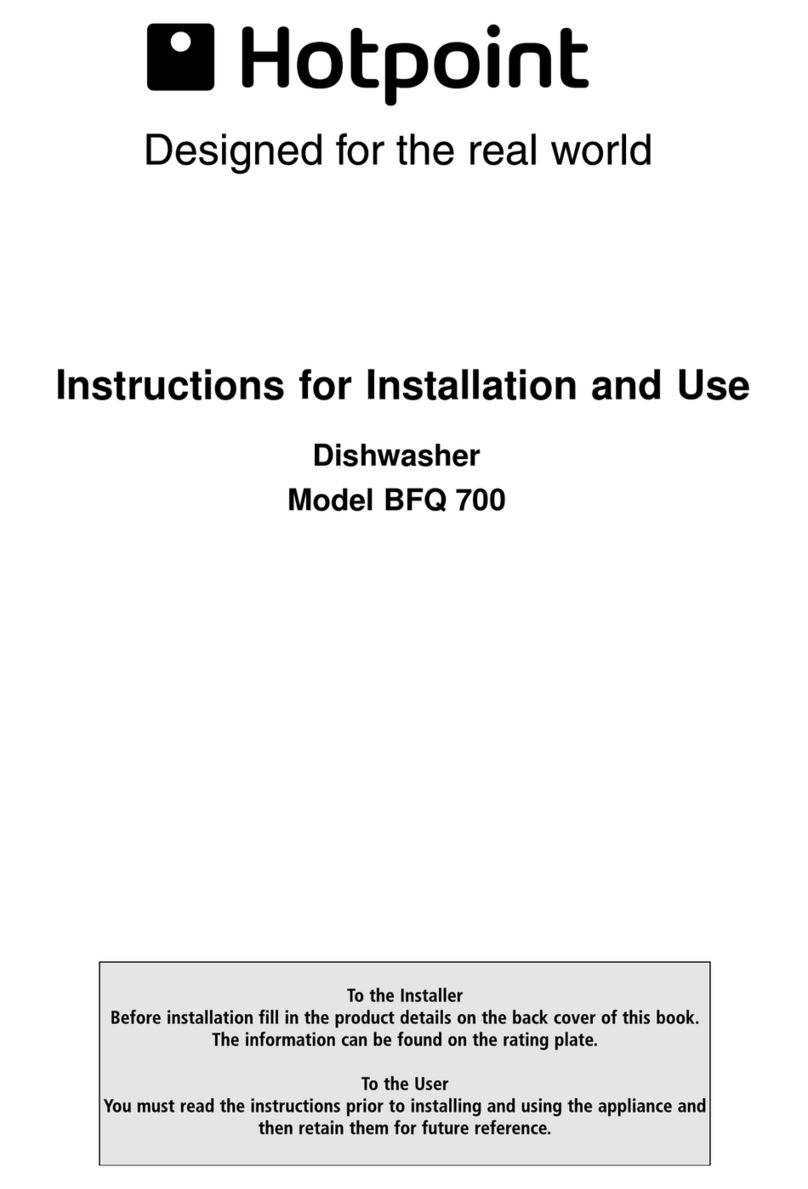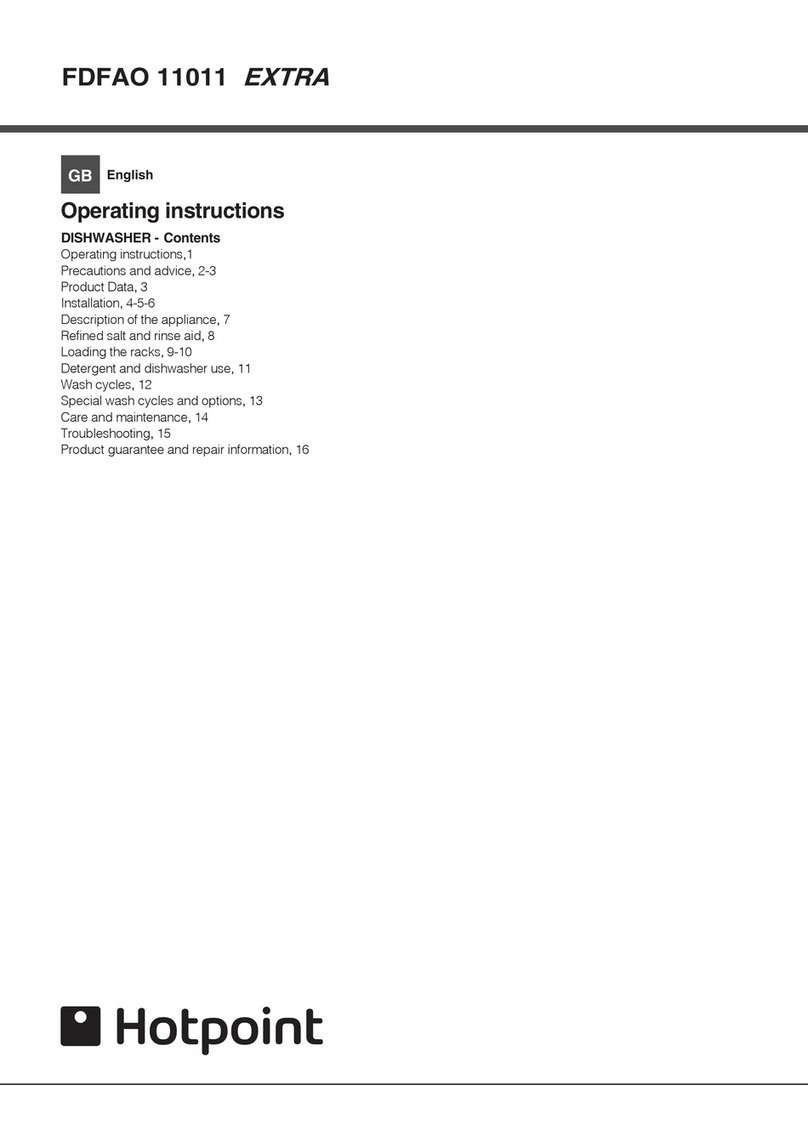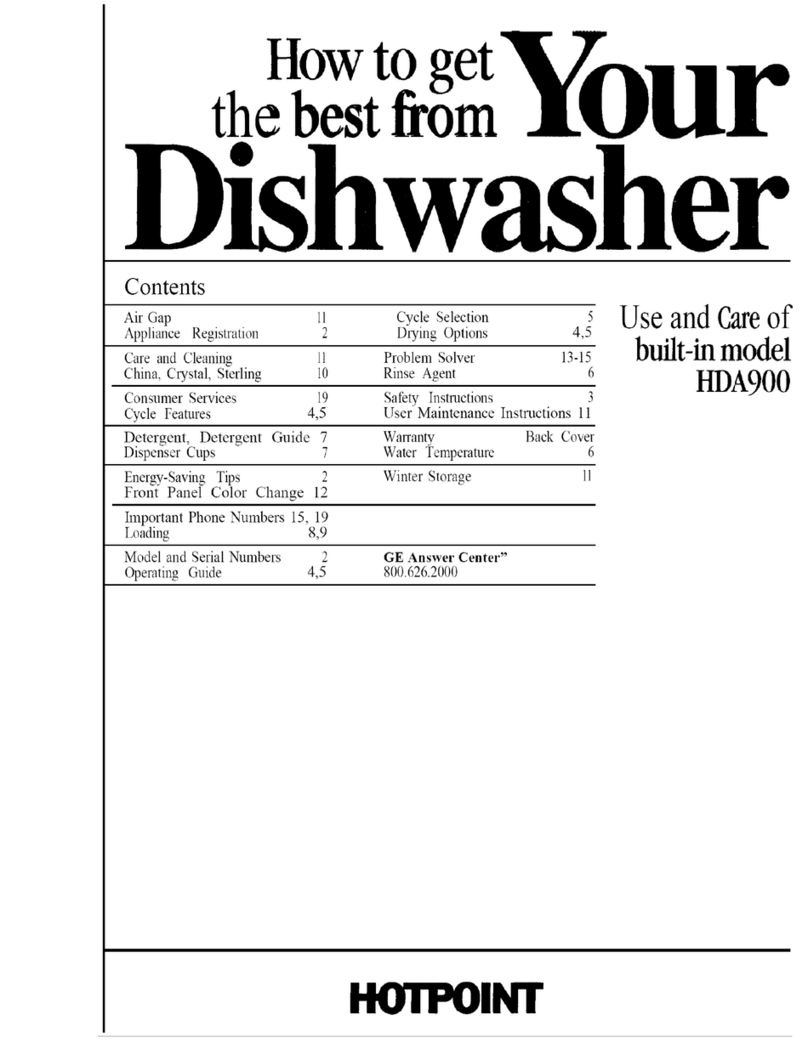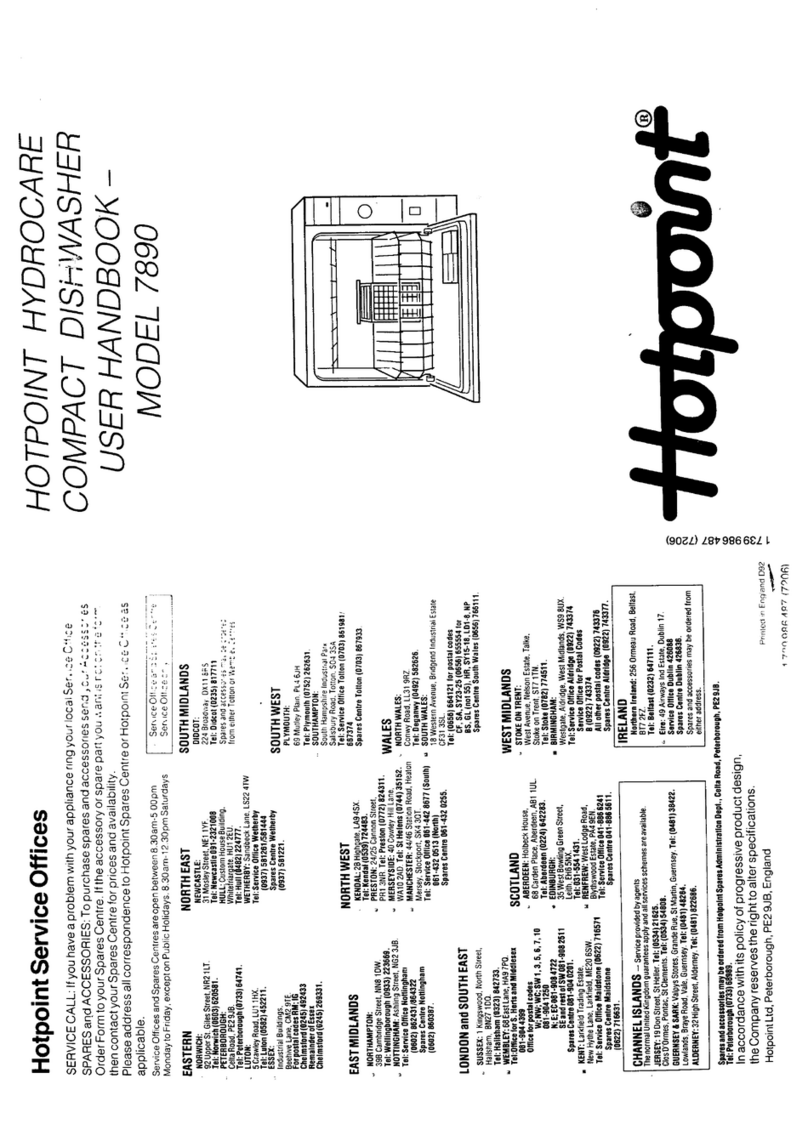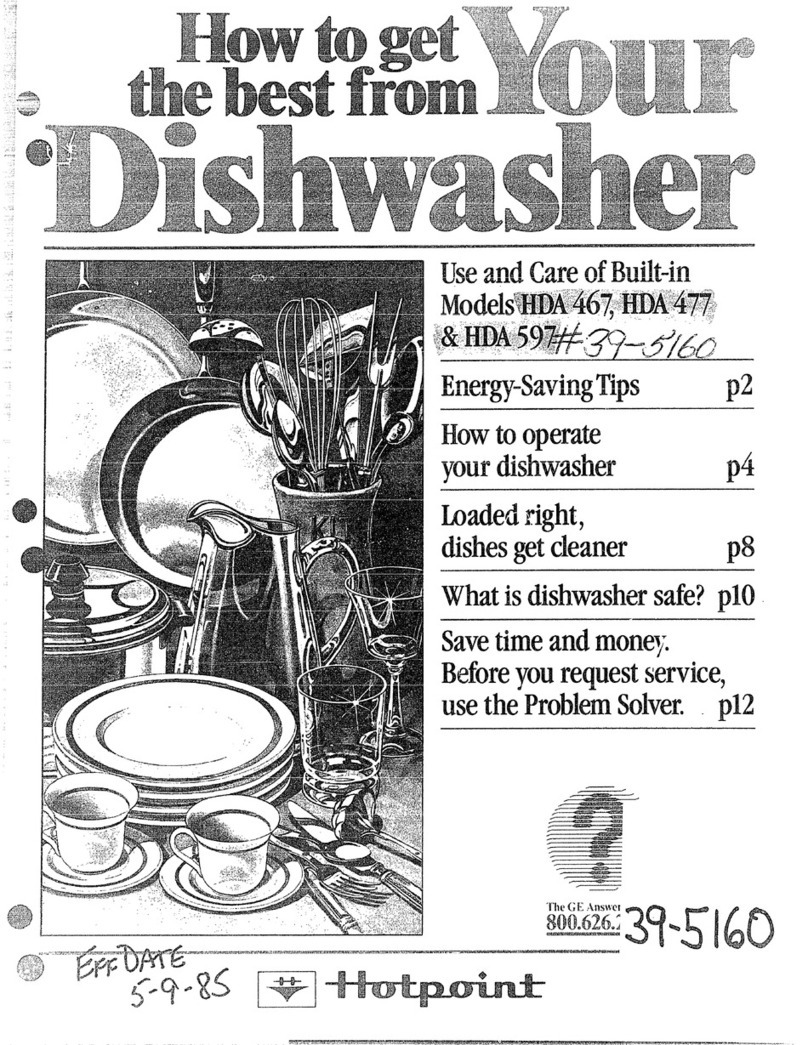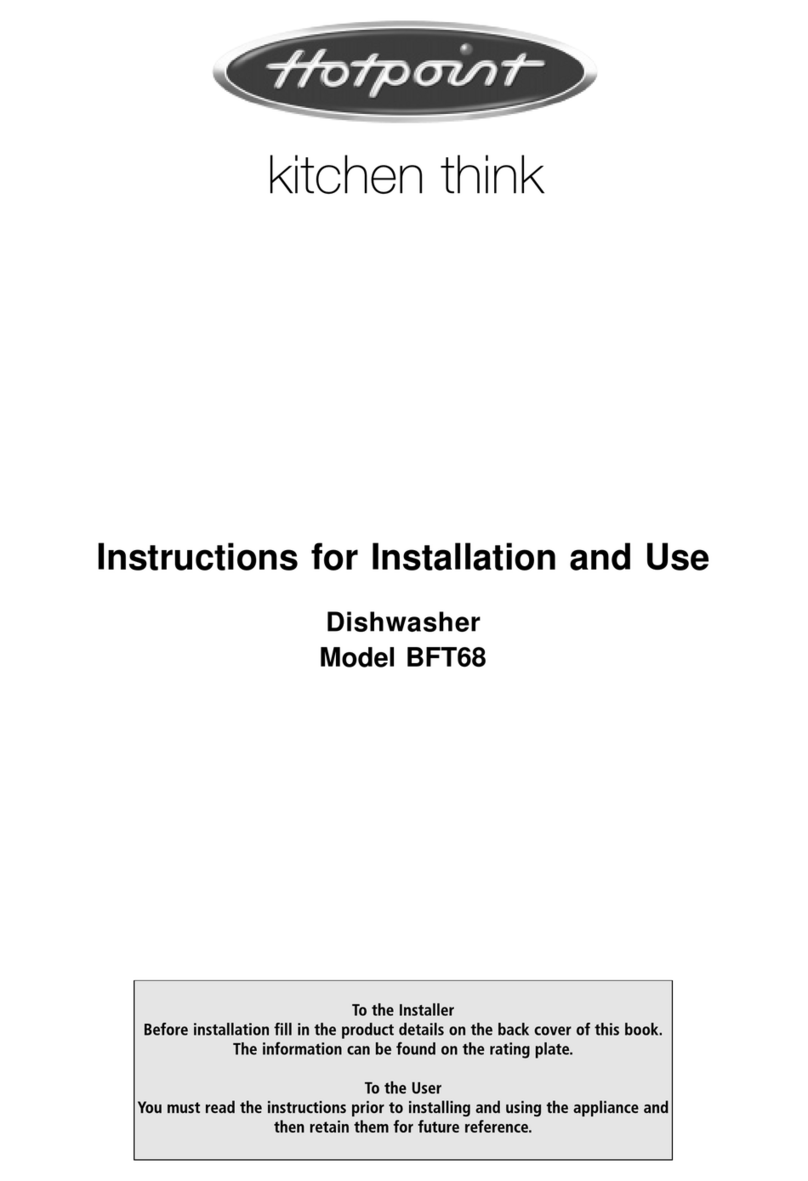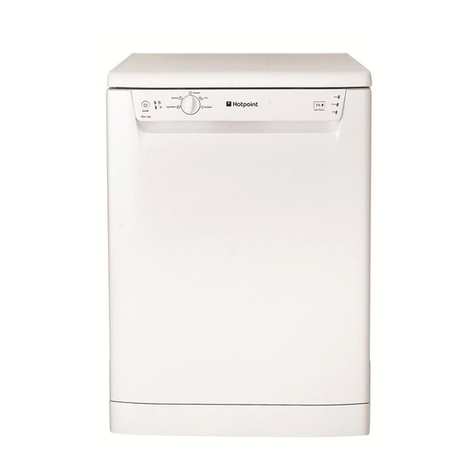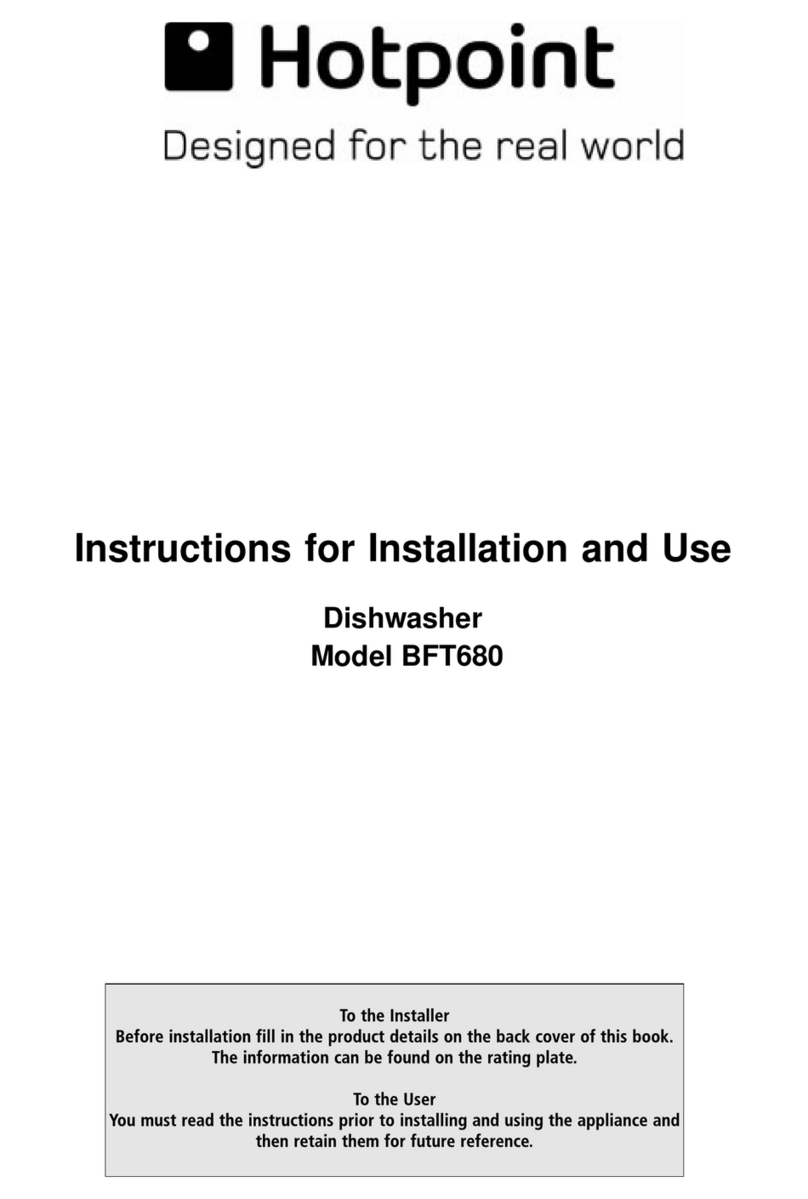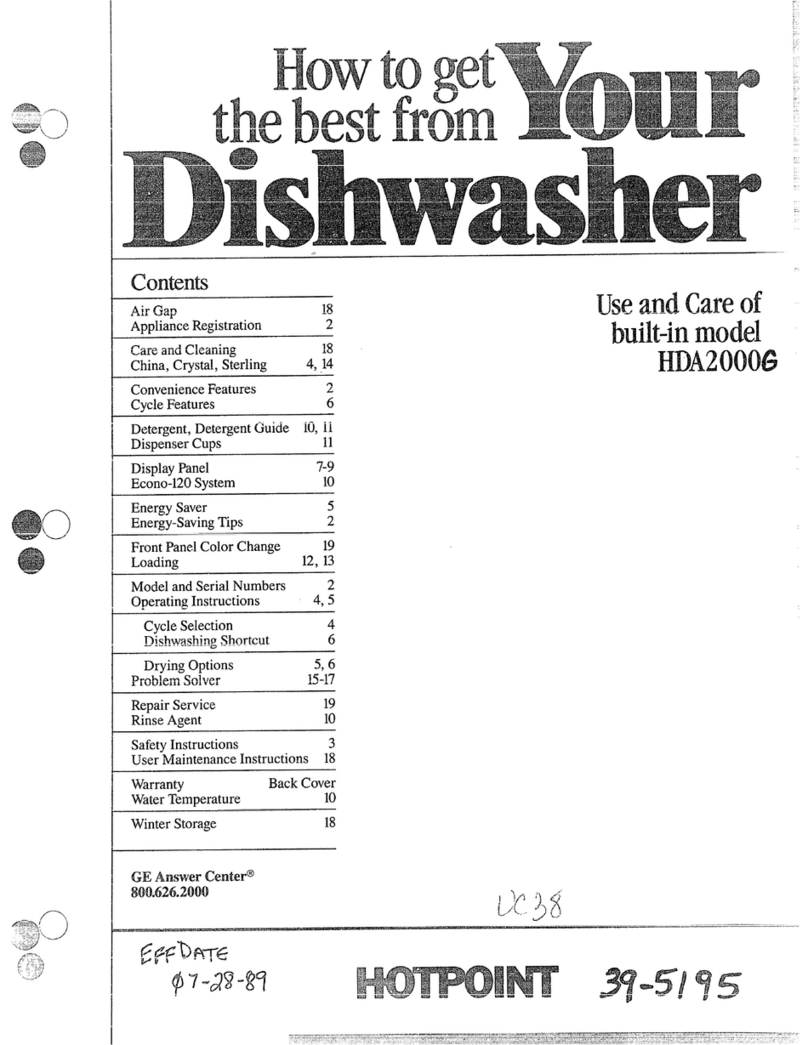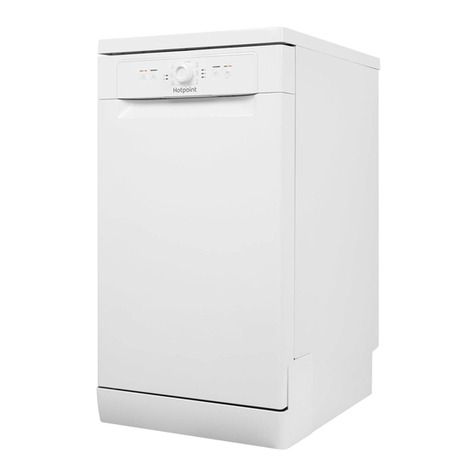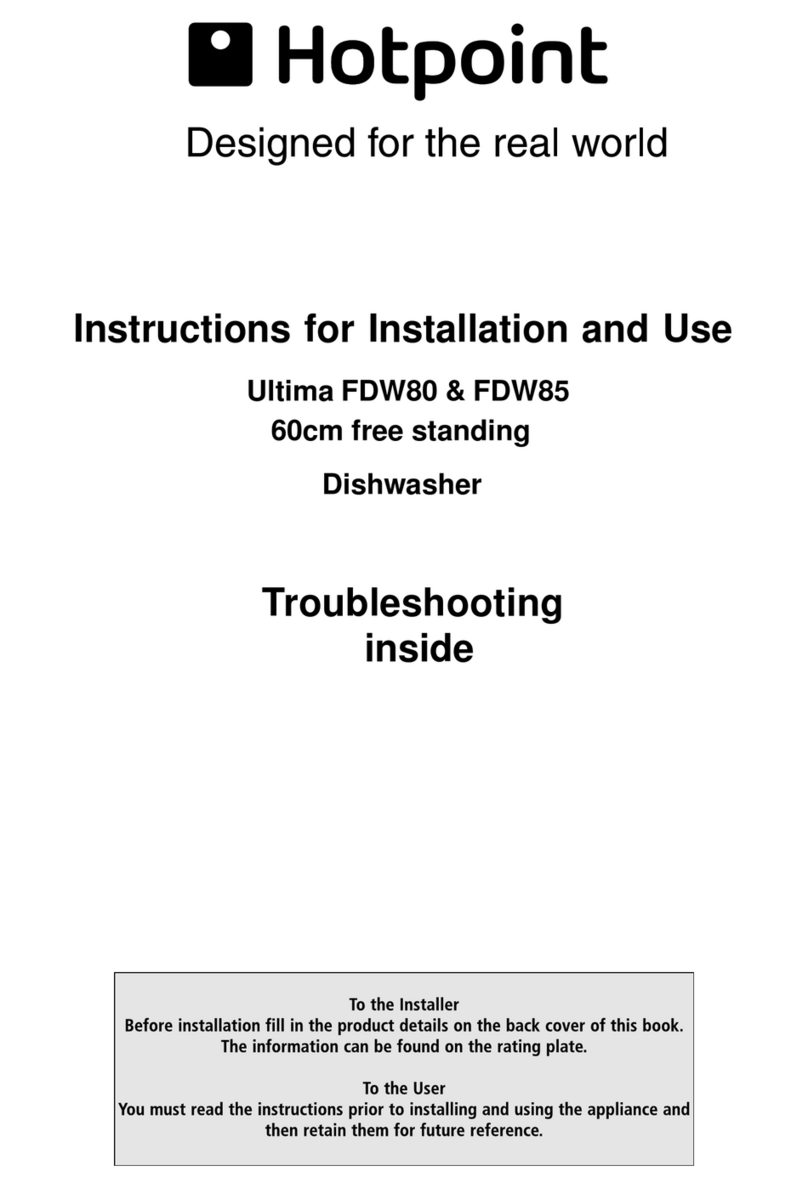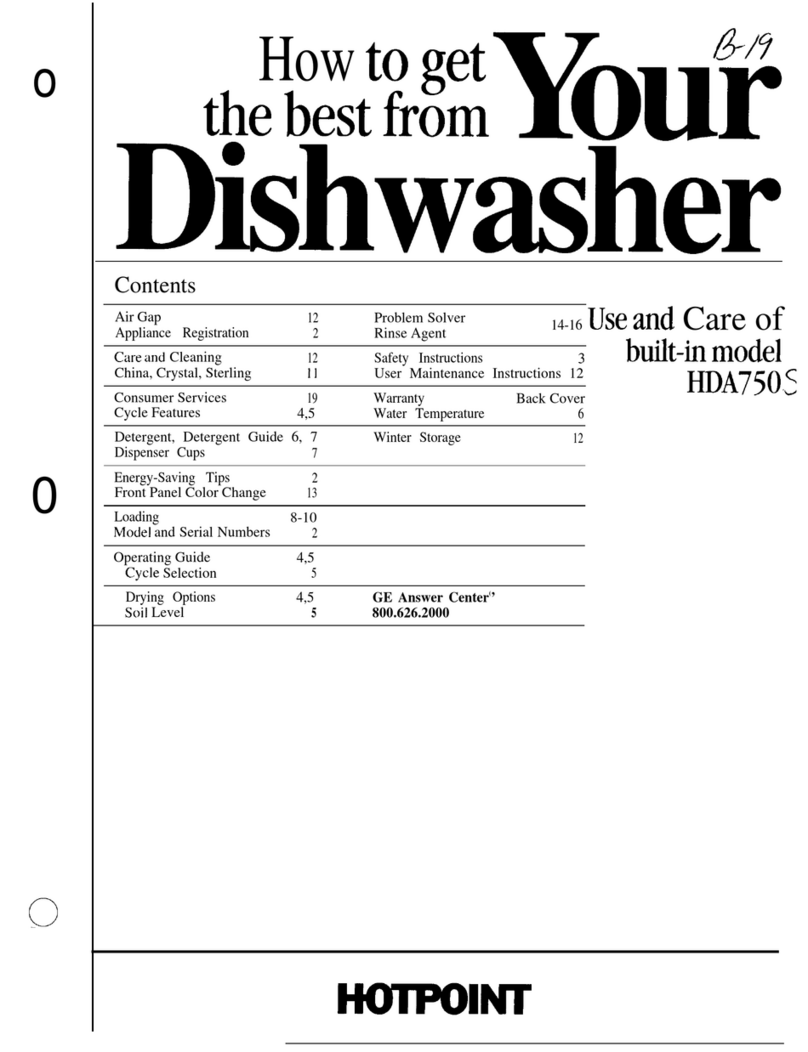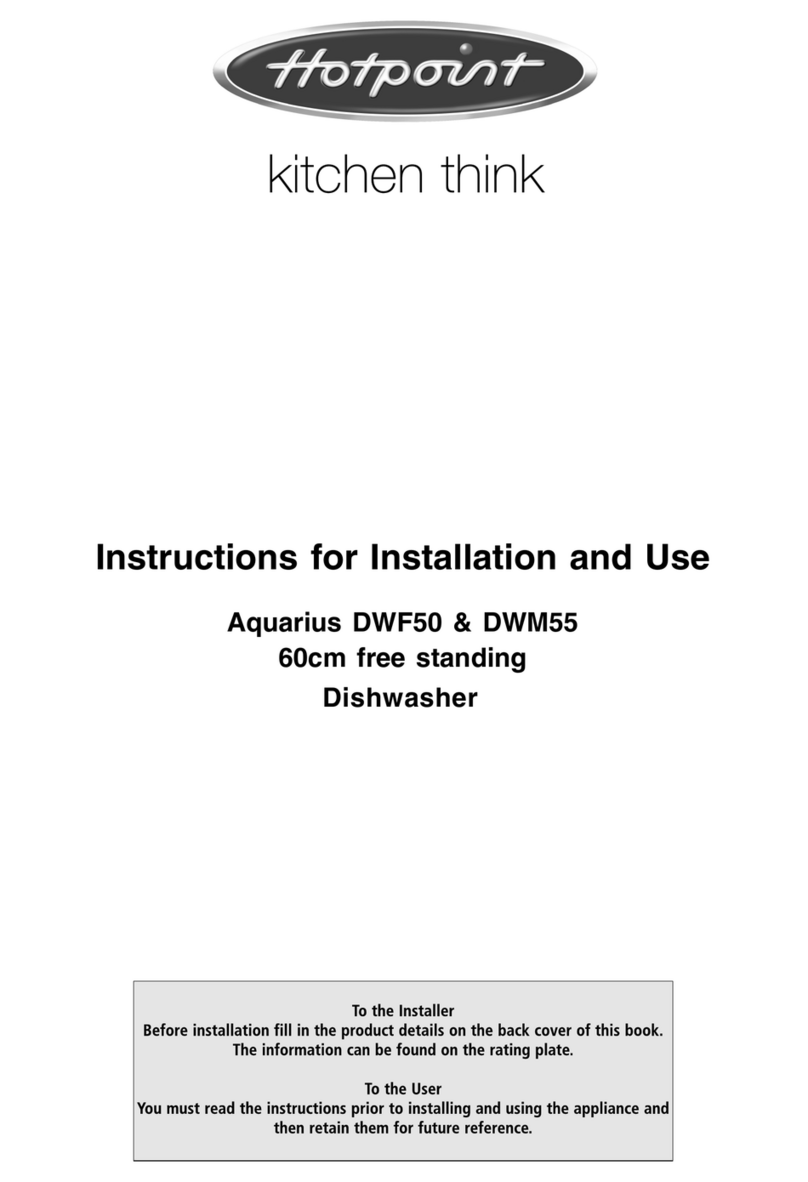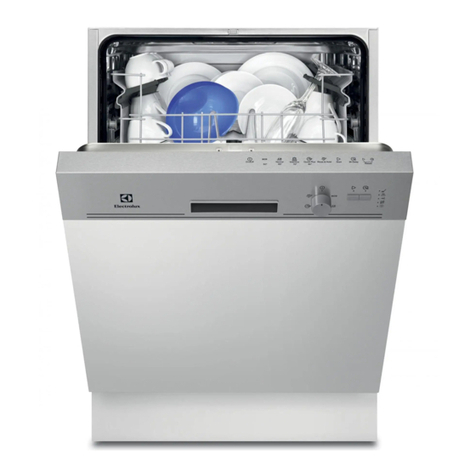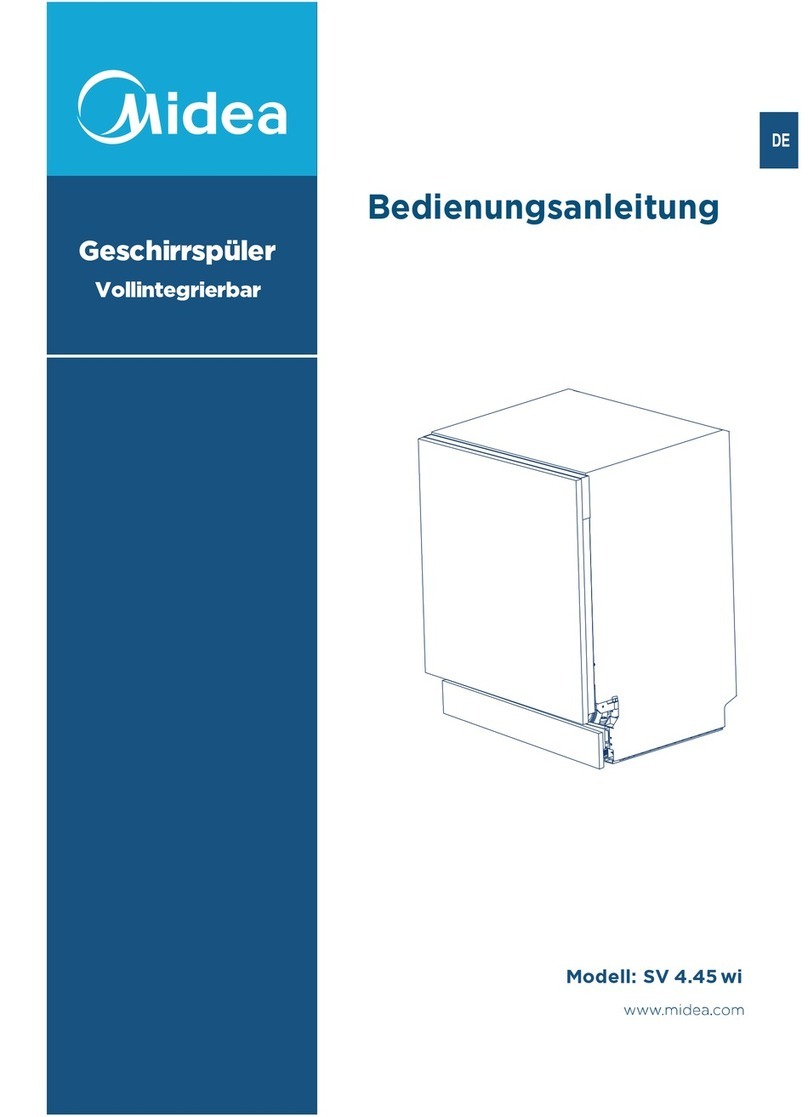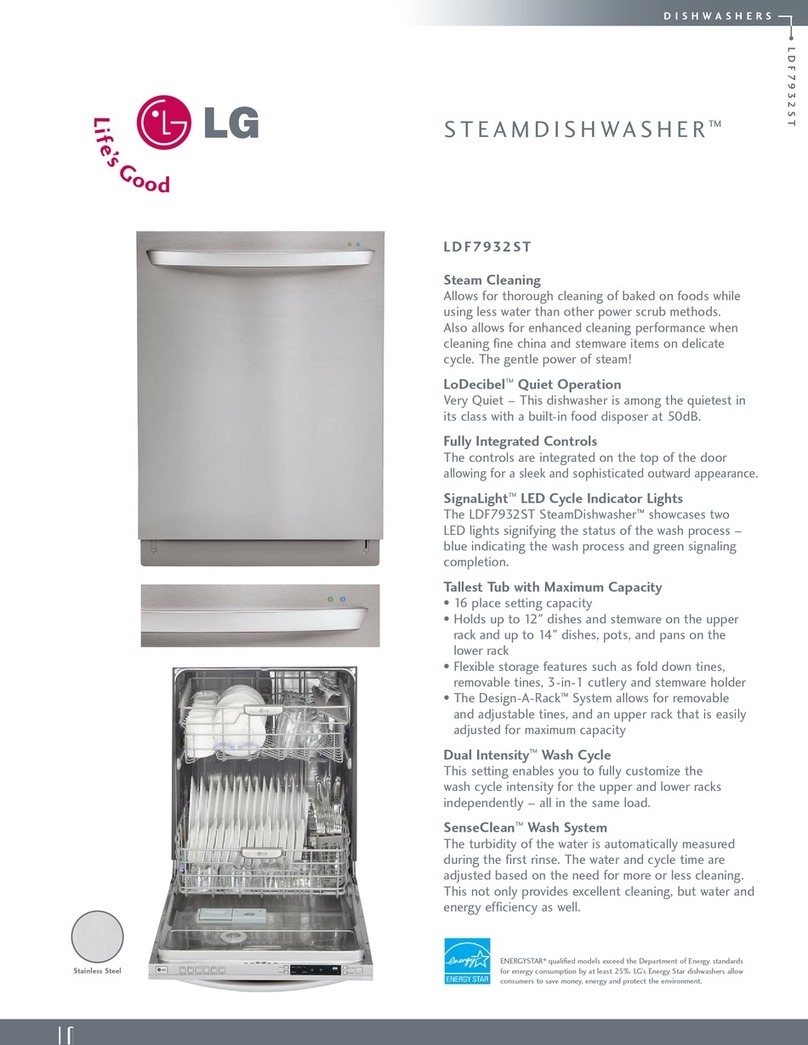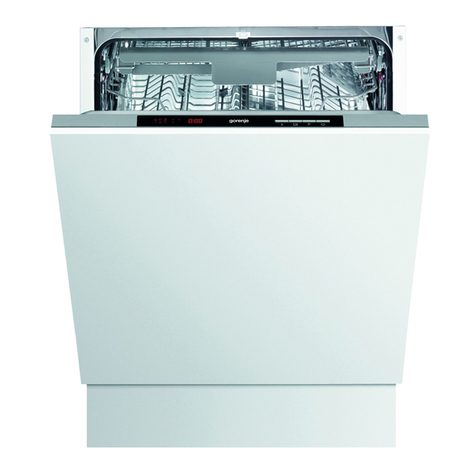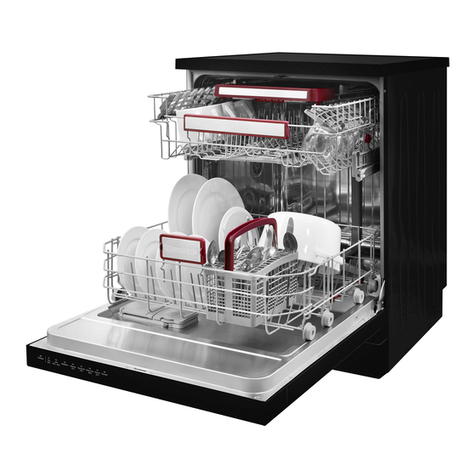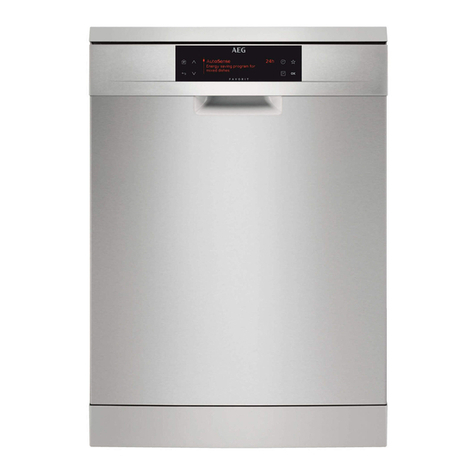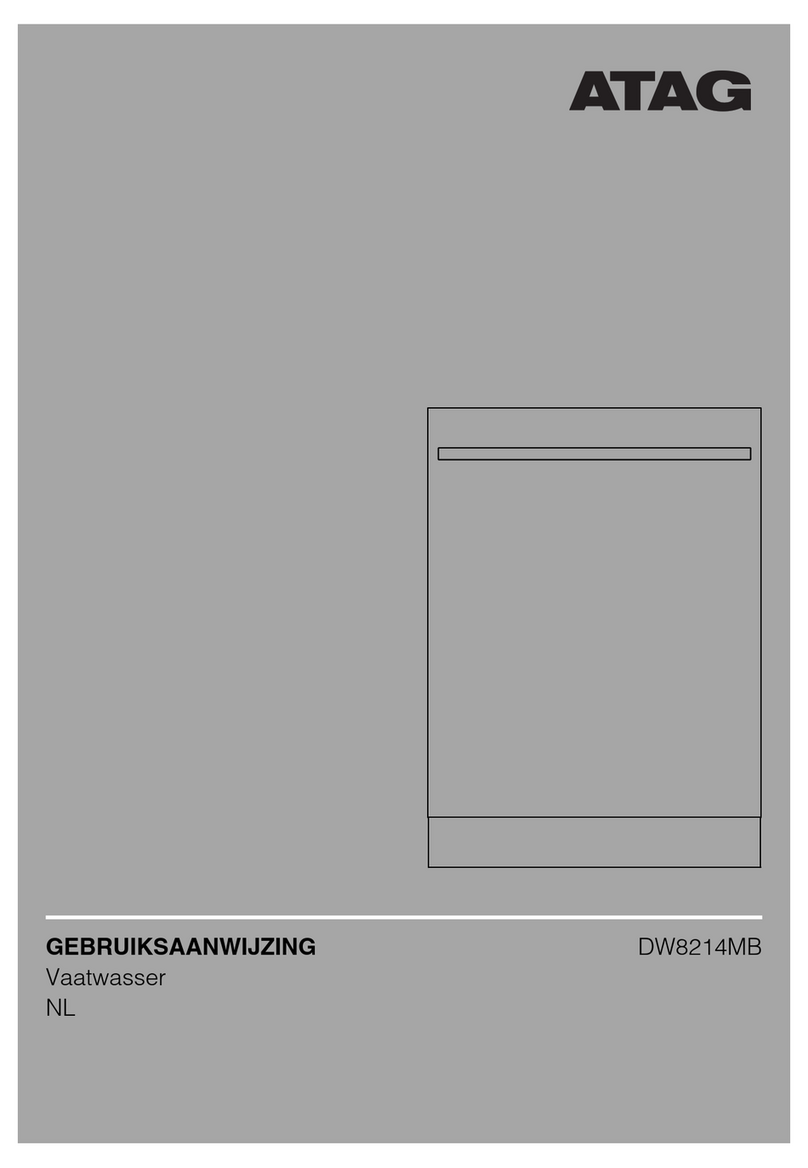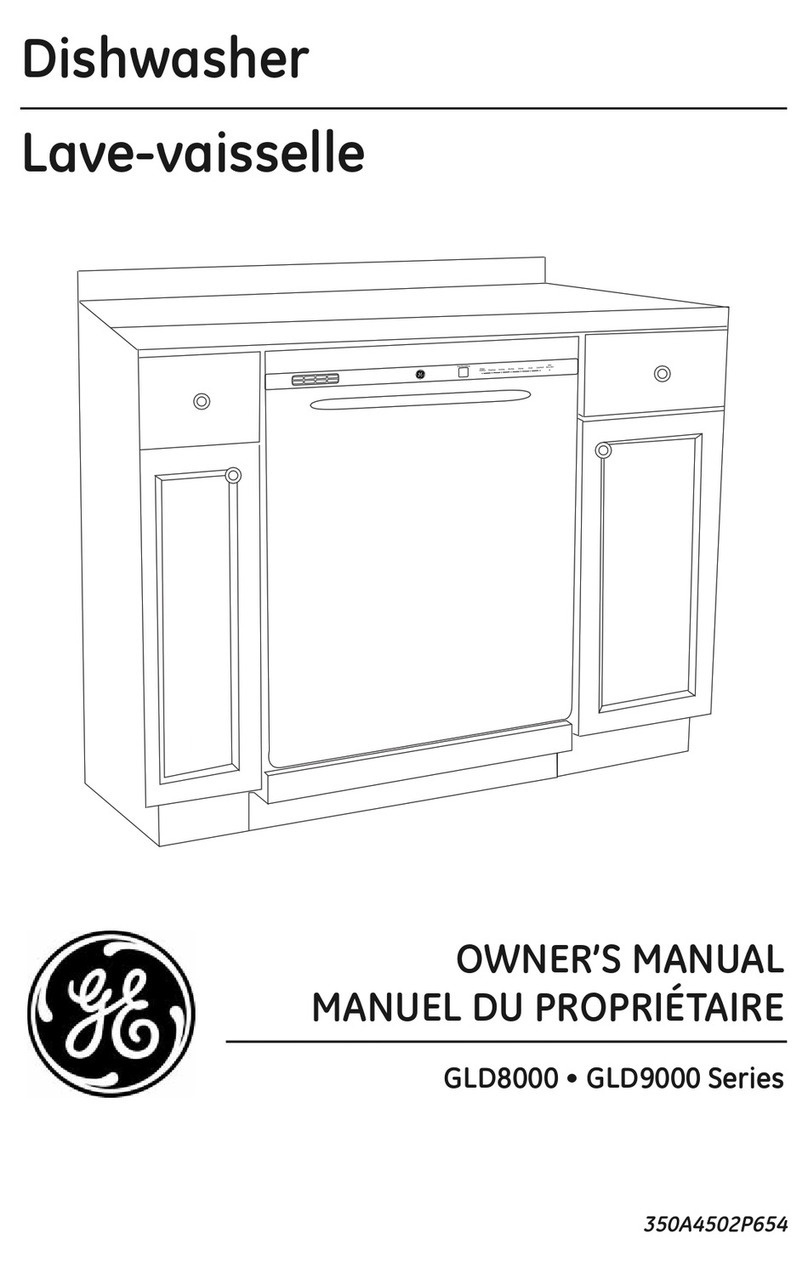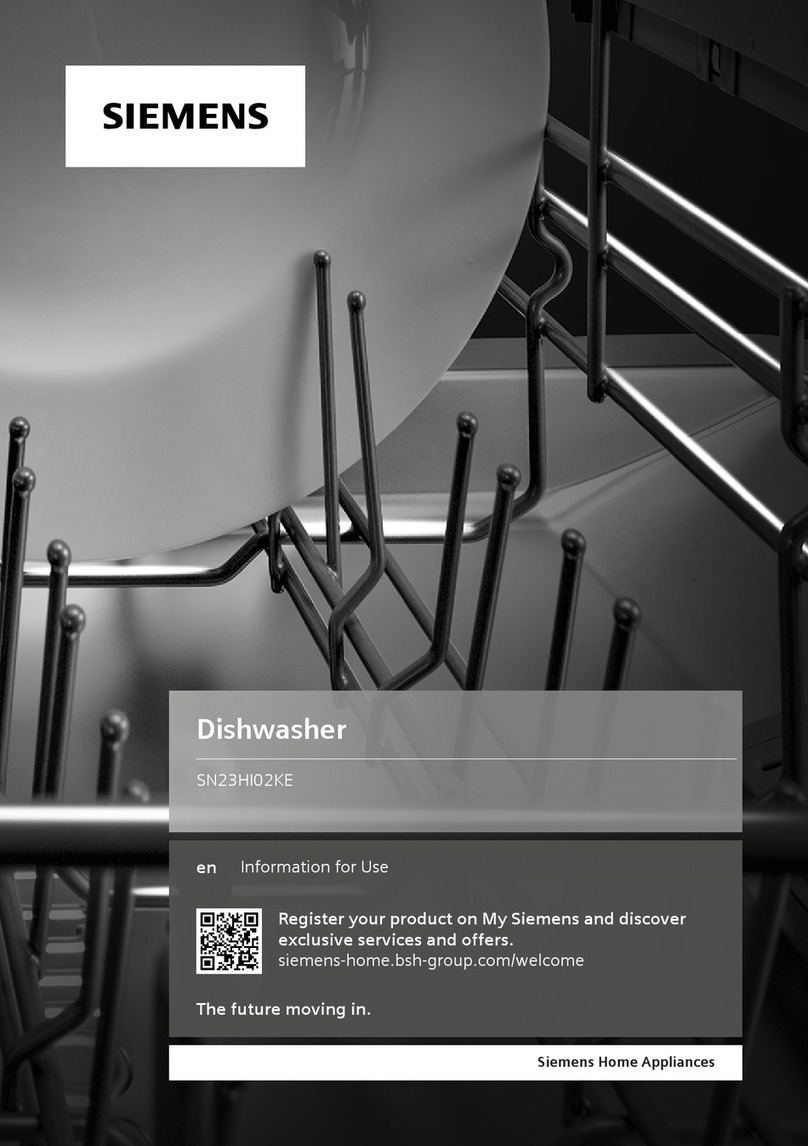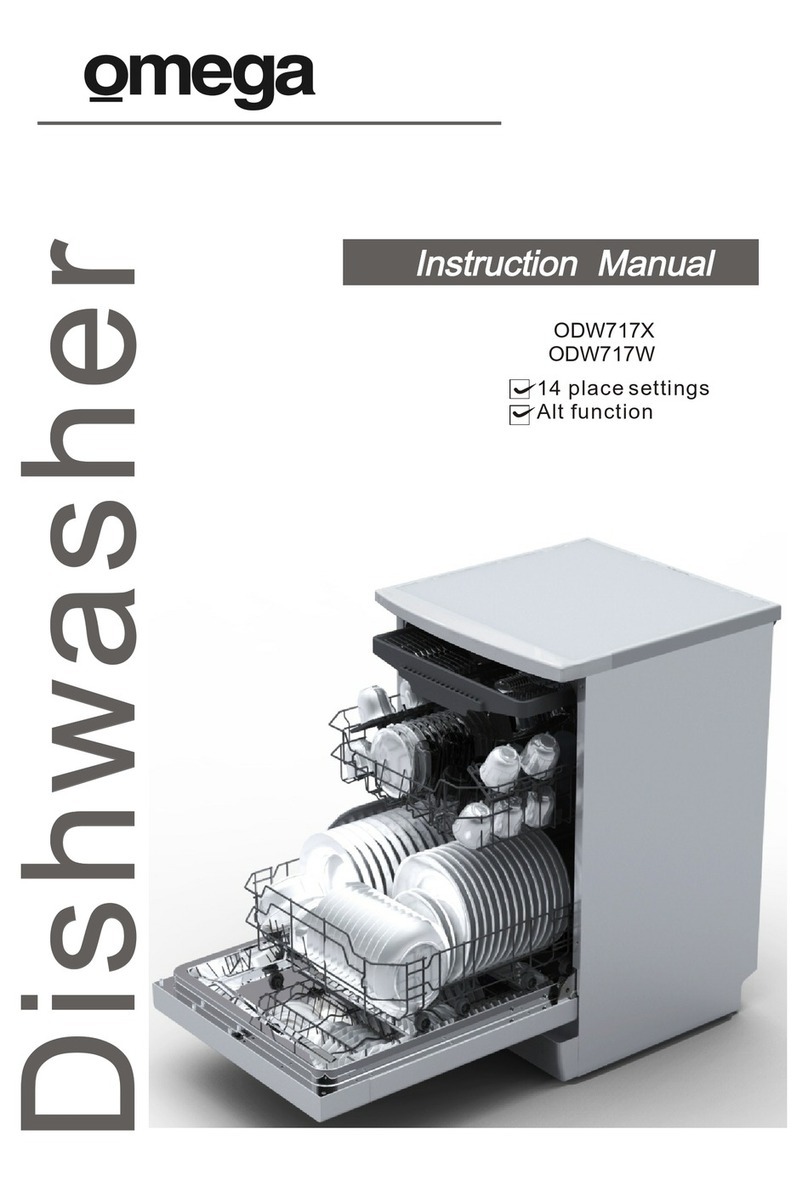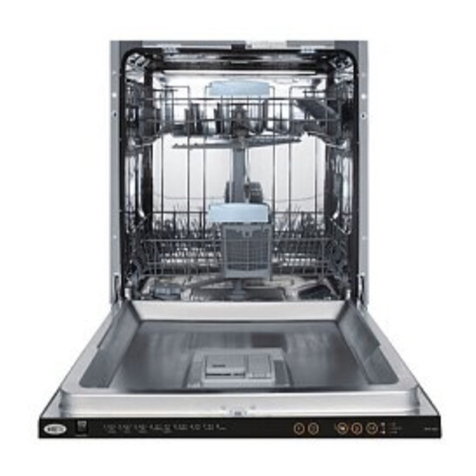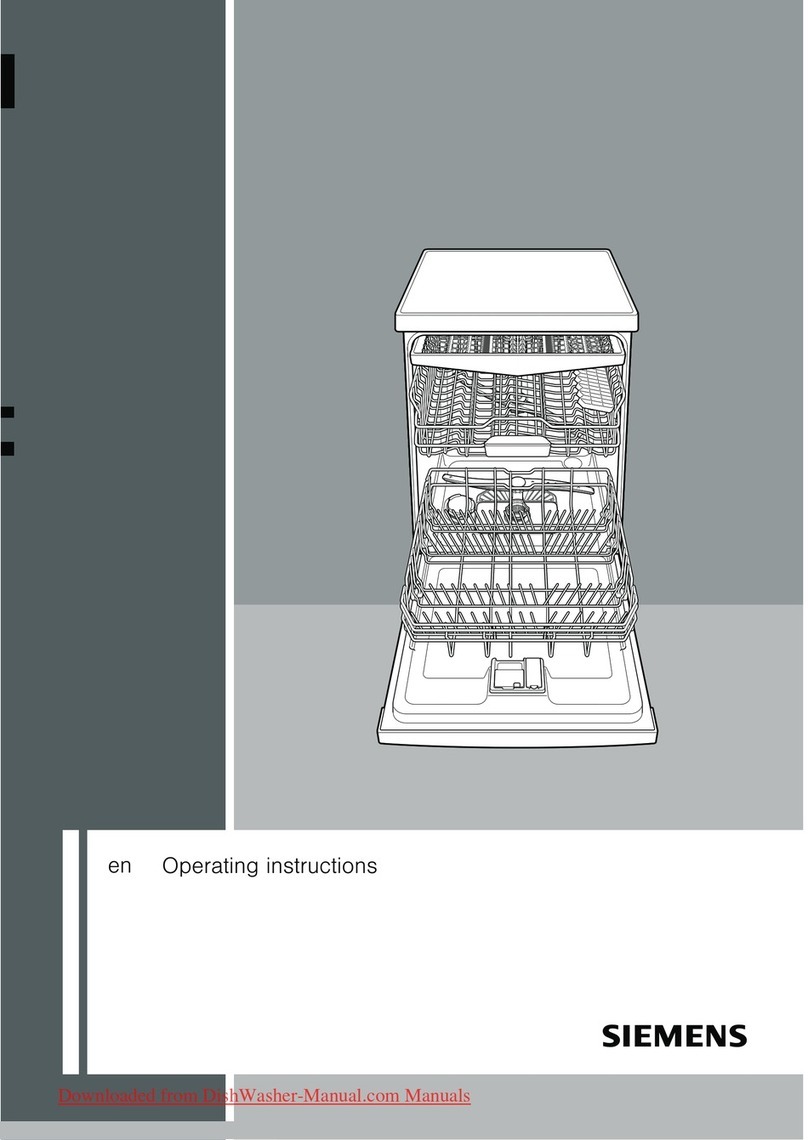Gooddishwashing
startswithHOTwater.
Togetdishescleanand dryyou
needhot water.Tohelpyouget
waterf~ftheproper temperature,
your ~otpoint dishwasherauto-
maticallysensesthe temperature
of thewater in the washcycleand
heatsit, if necessary,to theproper
temperature.For good washing
and drying,the enteringwater
mustbeat least 120‘F.Toprevent
dishwaredamage,inletwater
shouldnot exceed150‘F.
Checkyourwatertemperature
withacandyormeatthermome-
ter.~rn on the hot waterfaucet
nearestthe dishwasher.Put the
thermometerin aglassand letthe
waterfillthe glassuntil thetemper-
ature stopsrising.If thewatertem-
perature isbelow120‘F.adjust
yourwater heater.
Helpfulhints:If outsidetempera-
turesare unusuallylowor if your
watertravelsalong distancefrom
heaterto dishwasheryoumay need
to setyour heater’sthermostat up.
If youhavenot used hot water for
sometime, the water in the pipes
willbe cold. Turn on the hot water
faucetat the sinkand allowit to
run until the wateris hot. Then
start the dishwasher.If you’ve
recentlydone laundry or run hot
waterfor showers,giveyourwater
heatertime to recoverbefore
operatingthe dishwasher.
Youcanhelpprevent
spottingwitharinse
agent.
Arinseagentmakeswaterflowoff
dishesquickerthan usual.This
lessenswaterspotting.Makesdry-
ingfaster,too.
For bestdiswashingperformance,
useof arinseagentis
recommended.
Rinseagentscomein eitherliquid
or solidform. Yourdishwasher’s
dispenserusesthe liquidform.
Here’showto filltherinseagent
dispenser.Unscrewthe cap. Add
the liquidrinseagentuntilit
reachesthe bottom of thelipinside
the dispenseropening.Replacethe
cap. The dispenserautomatically
releasesthe rinseagentinto the
finalrinsewater.
If youaccidentallyspill:Wipeup
the rinseagentwithadamp cloth.
Don’t leavethe spillin the dish-
washer.It can keepyourdetergent
from working.
If youcan’tfindanyrinseagent,
write:
ECONOMICSLABOWTORY,
INC.
(“JET DRY”)
Osborn Building
St. Paul, Minnesota55102
Howtochooseanduse
detergent.
First,useonlydetergentspecifi-
callymadeforuseindishwashers.
Othertypeswillcauseover-sudsing.
Second,checkthephosphate o
content.Phosphate helpsprevent
hard-watermaterialsfrom forming
spotsor filmon your dishes.If
yourwater ishard (10grainsor
more), your detergenthas to work
harder.Detergentswithahigher
phosphatelevelwillprobablywork
better.If the phosphatecontent is
low(8.7V0or less),you’llhaveto
useextradetergentwithhard water.
Yourwaterdepartmentcantell
youhowhardyourwateris. So
can your rural countyagent. Or
your area’swater softenercom-
pany.Just calland askthem how
many “grains” of hardnessisin
your water.
Howmuchdetergentshouldyou
use?That depends. Isyour water
~~h~d”or c~soft?”With hard ~
water,you needextradetergentto -
getdishesclean.With soft water,
you needlessdetergent.
Toomuch detergentwithsoft —
waternot onlywastesmoney,it
can be harmful. It can causea
permanentcloudinessof glass-
ware, called“etching?’An outside
layerof glassisetchedaway!Of
course,thistakes sometime. But
whytake achancewhenit’seasy
to find out the hardnessof your
water.
Keepyourdetergentfreshand
dry.Under the sinkisn’tagood
placeto storedetergent.Toomuch
moisture. Don’t put detergentinto
the dispenseruntilyou’reready to
washdishes,either.(It won’tbe
freshOR dry.)

